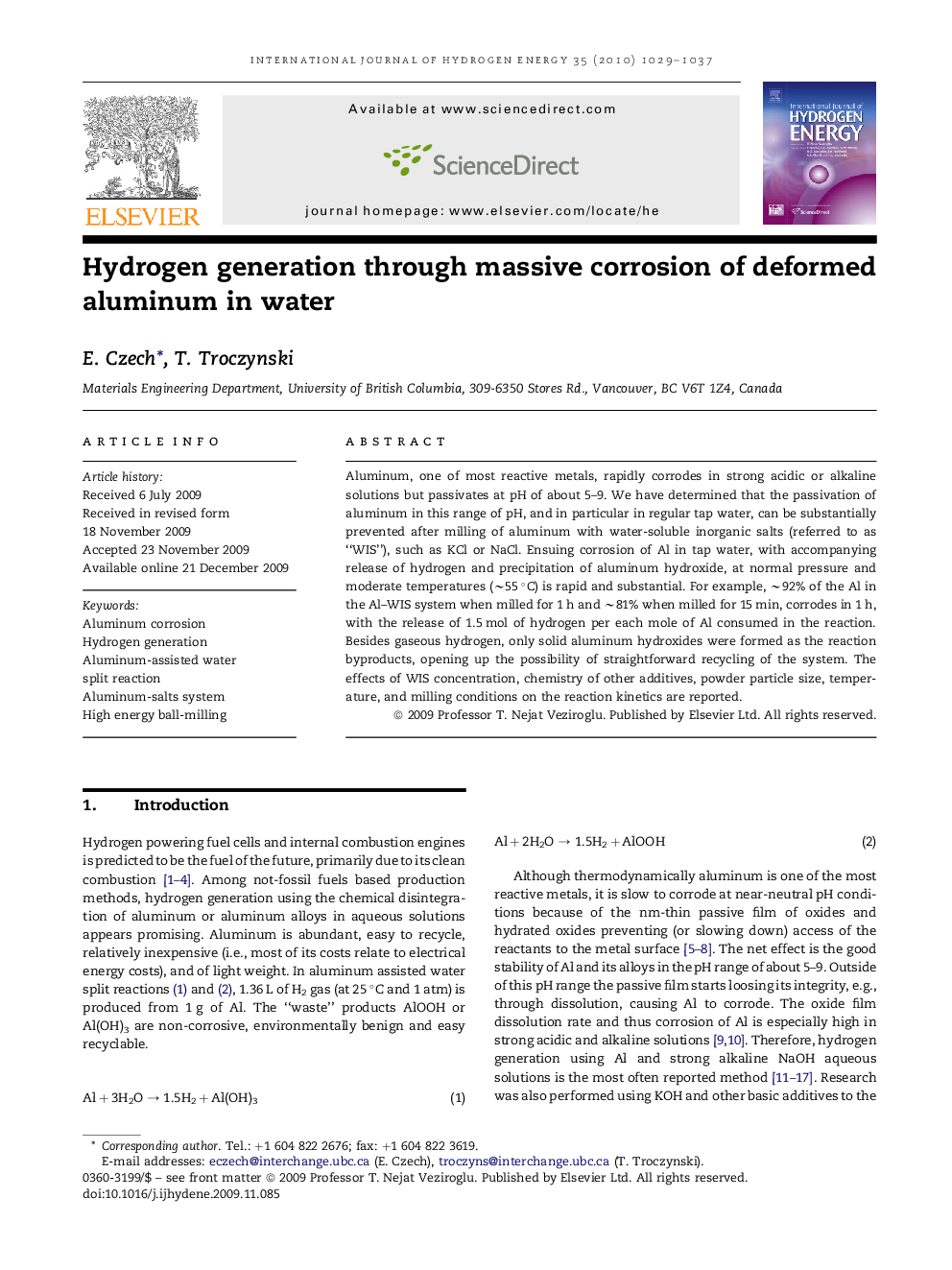| Article ID | Journal | Published Year | Pages | File Type |
|---|---|---|---|---|
| 1273494 | International Journal of Hydrogen Energy | 2010 | 9 Pages |
Aluminum, one of most reactive metals, rapidly corrodes in strong acidic or alkaline solutions but passivates at pH of about 5–9. We have determined that the passivation of aluminum in this range of pH, and in particular in regular tap water, can be substantially prevented after milling of aluminum with water-soluble inorganic salts (referred to as “WIS”), such as KCl or NaCl. Ensuing corrosion of Al in tap water, with accompanying release of hydrogen and precipitation of aluminum hydroxide, at normal pressure and moderate temperatures (∼55 °C) is rapid and substantial. For example, ∼92% of the Al in the Al–WIS system when milled for 1 h and ∼81% when milled for 15 min, corrodes in 1 h, with the release of 1.5 mol of hydrogen per each mole of Al consumed in the reaction. Besides gaseous hydrogen, only solid aluminum hydroxides were formed as the reaction byproducts, opening up the possibility of straightforward recycling of the system. The effects of WIS concentration, chemistry of other additives, powder particle size, temperature, and milling conditions on the reaction kinetics are reported.
